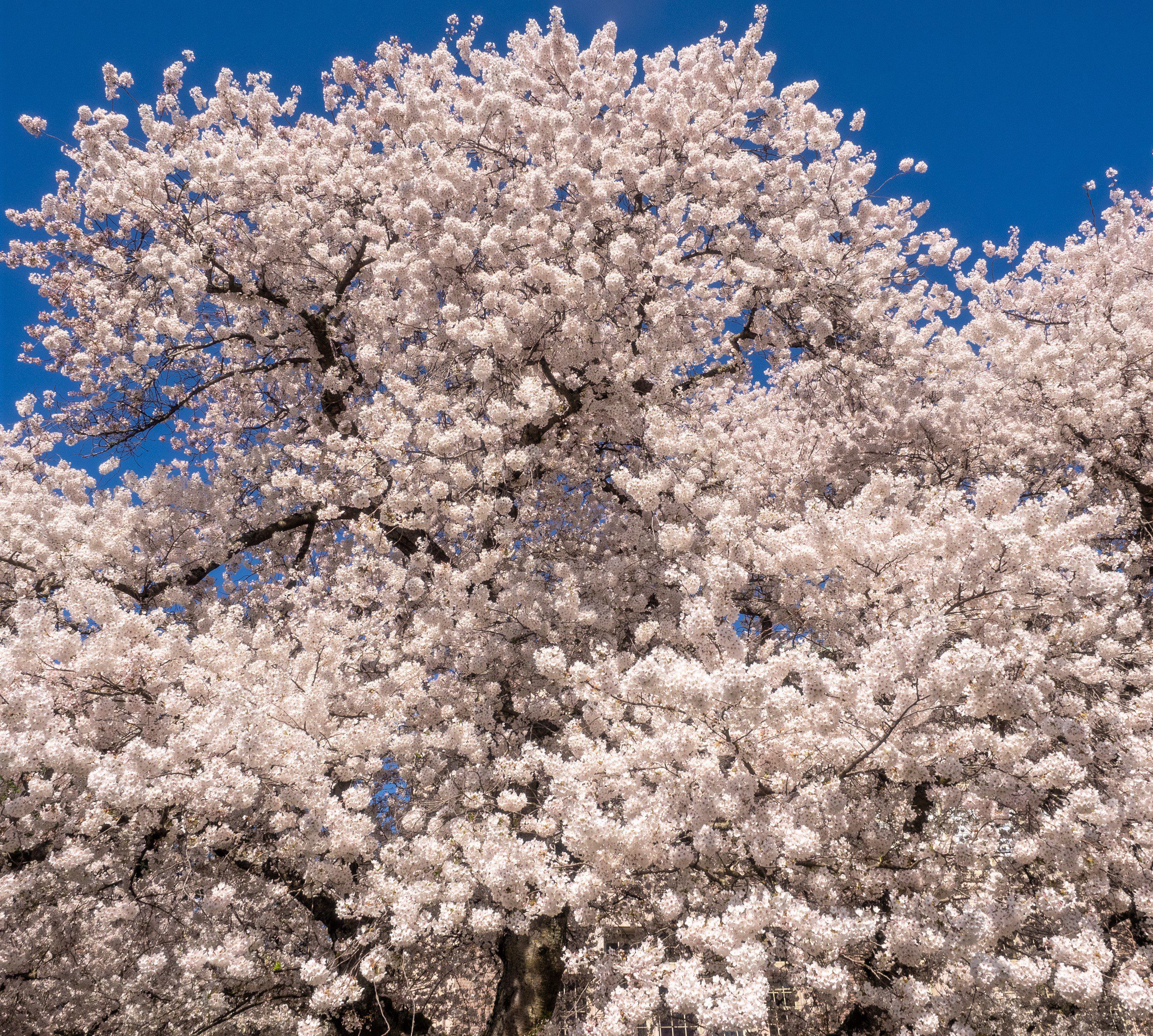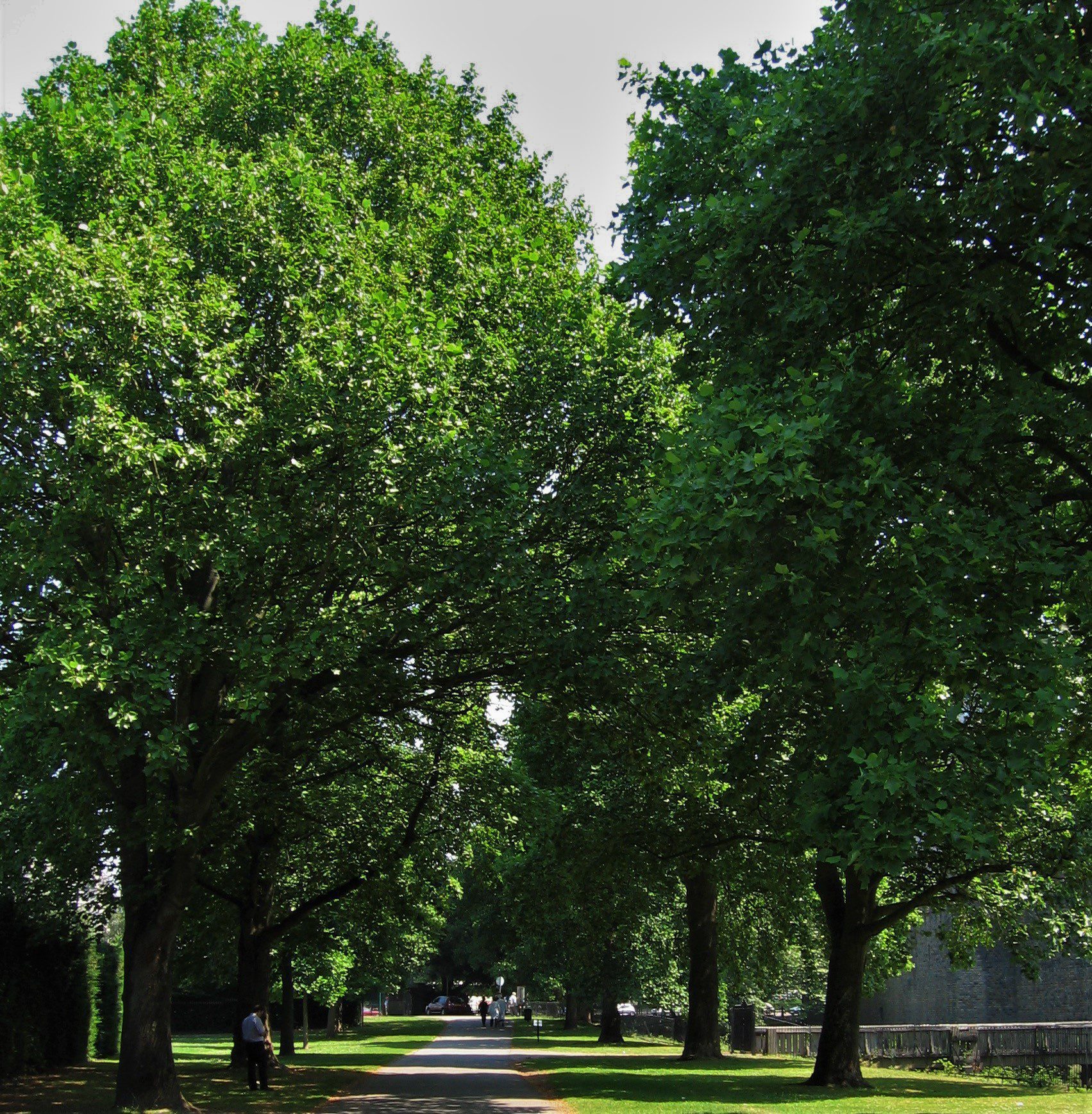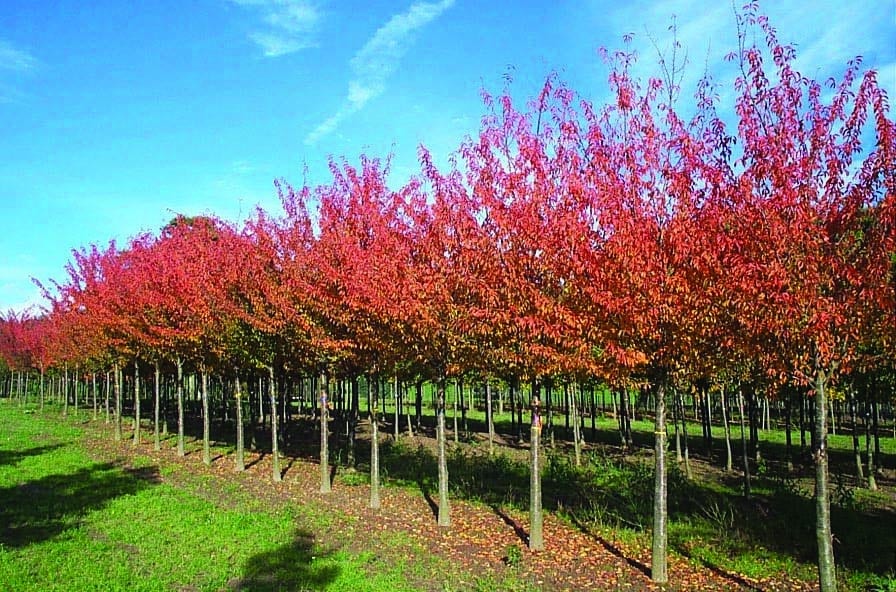Planting trees is a powerful strategy to help combat pollution. Trees act as natural air filters, absorbing pollutants like carbon dioxide and nitrogen oxides, while releasing clean oxygen into the atmosphere. Our recommended tree list highlights varieties that are particularly strong in three areas of pollution:
Removing air pollution particulates (PM2.5)
PM2.5 air particulates are those fine, miniscule particulates found in car exhausts, for example. These are dangerous and can cause a myriad of breathing and heart problems.
CO2 sequestration
All trees absorb carbon dioxide from the air to some extent, but some varieties are particularly proficient.
Countering the Urban Heat Island effect (UHI)
Man-made construction materials concentrated in a small area – like roads and buildings – can cause higher temperatures by absorbing heat and radiating it back into the environment. All trees have the ability to counter this by cooling their immediate surrounds through transpiration and creating shade. Again, some trees are particularly powerful in this regard.
Pollution combatting tree list
An ‘x’ indicates a high rating for that topic. Please note that this list is not exhausting and will continue to expand as more trees are tested. A noteworthy addition is the Hippophae salicifolia ‘Streetwise’, known for its exceptional ability to remove road salts from the soil, particularly from de-icing roads.
| Removing air pollution | C02 sequestration | Countering UHI | |
| Acer campestre (and cultivars) | X | ||
| Acer platanoides (and cultivars) | X | X | |
| Acer rubrum (and cultivars) | X | X | |
| Aesclus indicia | X | X | |
| Alnus (all species and cultivars) | X | ||
| Betula albosinensis, Betula ermanii, Betula nigra, Betula utilius (and cultivars) | X | ||
| Betula pendula (and cultivars) | X | ||
| Carpinus betulus (and cultivars) | X | ||
| Castanea sativa | X | X | X |
| Corylus colurna | X | ||
| Crataegus media Paul’s Scarlet | X | ||
| Fagus sylvatica | X | X | |
| Juglans nigra | X | X | X |
| Juglans regia | X | X | |
| Liriodendron tulipifera | X | ||
| Magnolia ‘Galaxy‘ | X | ||
| Magnolia kobus | X | X | X |
| Malus (all) | X | X | |
| Pinus nigra, Pinus sylvestris | X | ||
| Platanus x hispanica | X | X | X |
| Prunus ‘Accolade‘ | X | X | |
| Pyrus calleryana ‘Chanticleer’ | X | ||
| Quercus robur (and cultivars) | X | X | X |
| Salix alba | X | X | X |
| Sorbus aria (and cultivars) | X | ||
| Sorbus aucuparia (and cultivars) | X | ||
| Taxus baccata and Taxodium distichum | X | ||
| Tilia cordata, Tilia x euchlora and Tilia tomentosa (and cultivars) | X | X | |
| Tilia platyphyllos (and cultivars) | X | X | X |
| Ulmus ‘New Horizon’, Ulmus ‘Rebona‘ and Ulmus ‘Fiorente’ | X | X | X |
“Ranking the suitability of common urban species for controlling PM2.5 pollution” – Jun Yang, Yamin Chang, Pengbo Yan
“The Urban Forest, Cultivating Green infrastructure for People and the Environment” – David Pearlmutter, Carlo Calfapietra, Roeland Samson, Liz O’Brien, Silvija Krajter Ostoic, Giovanni Sanesi, Rocio Alenso.
“Variation in Nitrogen Dioxide assimilation among 217 plant taxa” Faculty of Science, Hiroshima University



